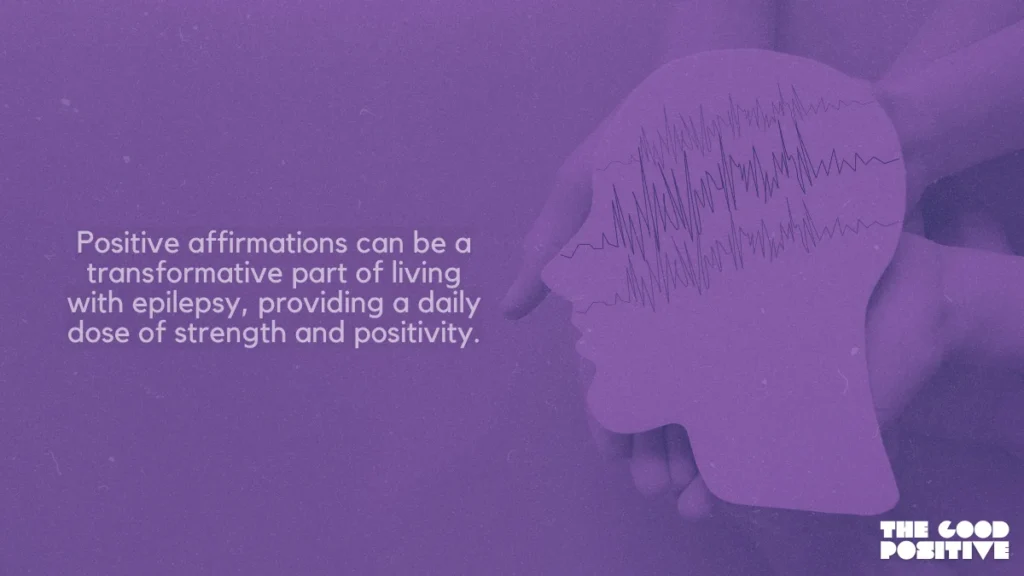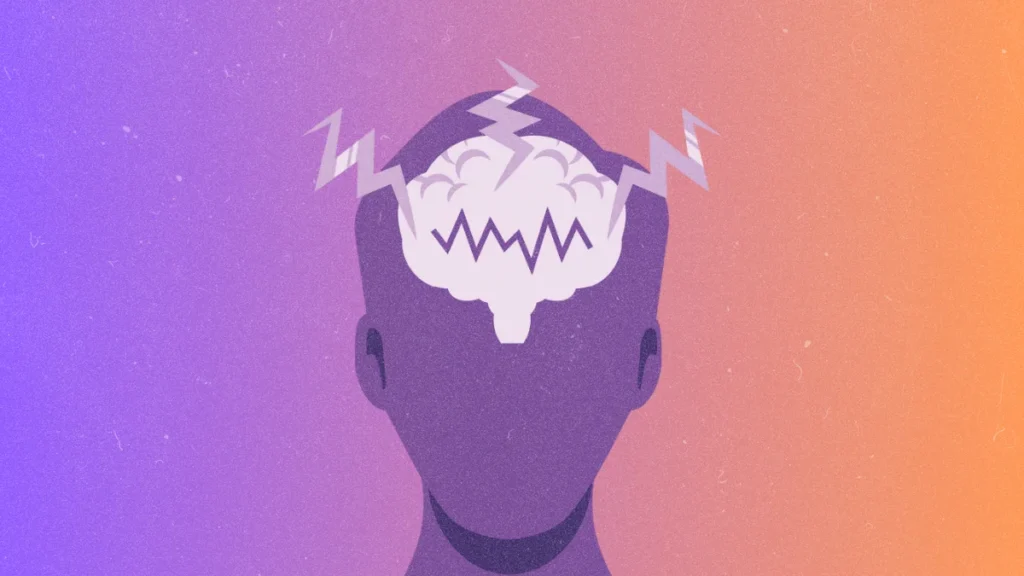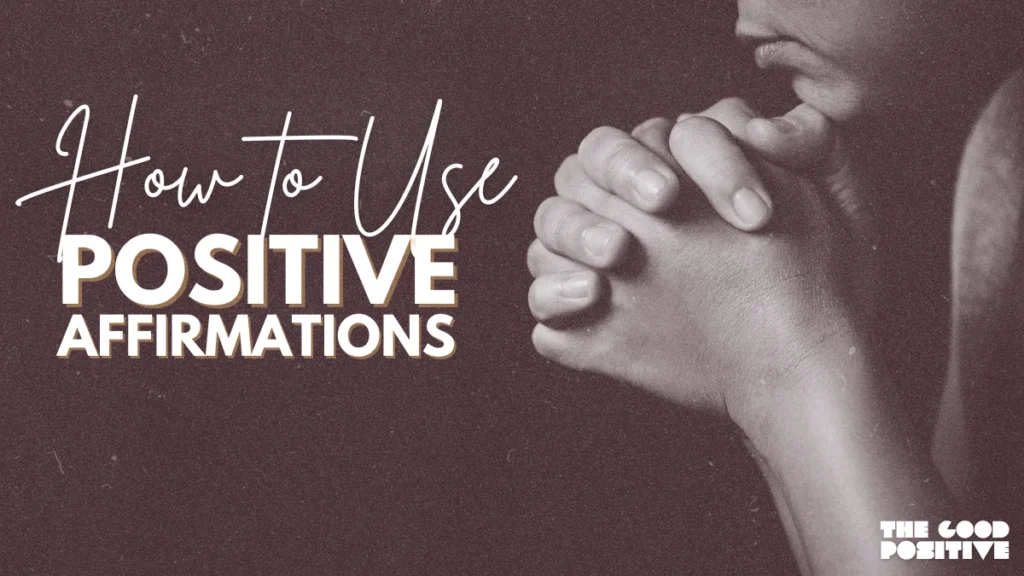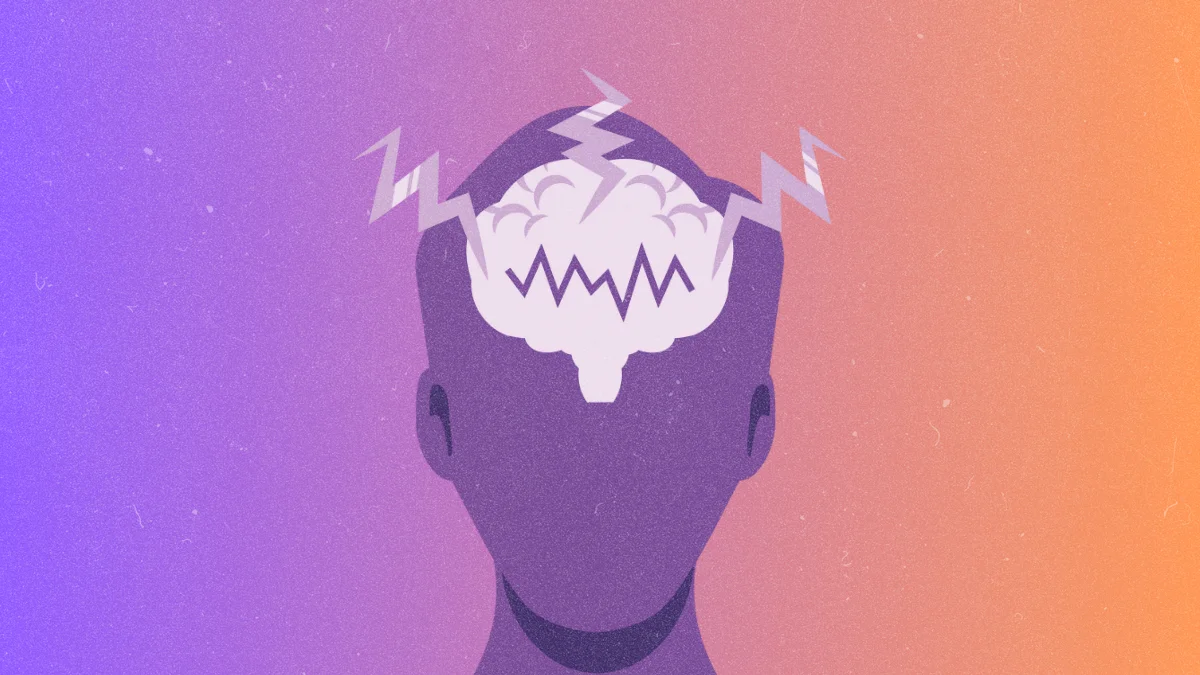Positive Affirmations for Epilepsy can be a gentle, yet powerful tool in managing life with this neurological condition. Imagine each affirmation as a small, soothing wave washing over the rugged shores of daily challenges, smoothing the pebbles of fear and uncertainty.
Epilepsy, with its unpredictability and unique struggles, often requires more than just medical management; it calls for a reservoir of mental resilience.
Affirmations offer a moment of peace and empowerment amidst the storms, reinforcing the belief that you are not defined by your condition.
Embrace these affirmations and let them guide you towards a mindset where you feel more in control and hopeful.
Table of Contents
Affirm More: Positive Affirmations for Engineers.
Why Use Positive Affirmations For Epilepsy?

Imagine starting your day with a message just for you, one that says you’re strong, capable, and more than your epilepsy.
That’s the power of positive affirmations. They’re reminders of your inner strength and resilience, crucial for anyone navigating the complexities of epilepsy.
Here’s why they’re so beneficial:
- Reduces Stress: Epilepsy can bring a lot of anxiety about when the next seizure might occur. Affirmations like “I am calm and at peace” can help ease this stress, as seen in the life of Sarah, who uses them to maintain calm during her daily commute.
- Boosts Confidence: Regular affirmations reinforce self-belief. James, a college student with epilepsy, starts his day with, “I am capable of achieving my goals,” which motivates him to tackle his studies and social life confidently, despite his condition.
- Encourages a Positive Outlook: Living with epilepsy can sometimes feel isolating. Affirmations help shift focus from limitations to possibilities. Lisa, who blogs about her epilepsy journey, uses affirmations like “I am surrounded by love and support,” which she credits with helping her maintain a positive outlook.
Incorporating these small, powerful statements can be a transformative part of living with epilepsy, providing a daily dose of strength and positivity. They’re simple reminders that while epilepsy is a part of your life, it doesn’t define your whole story.
100 Positive Affirmations For Epilepsy

Embark on a journey of self-empowerment with our “100 Positive Epilepsy Affirmations.” Each affirmation is a whisper of strength and resilience, tailored to uplift and fortify your spirit as you navigate life with epilepsy.
Picture each phrase as a trusted friend, offering comfort and courage on challenging days. 🔖 Don’t forget to bookmark this page and join us in a 21-day challenge—recite these affirmations daily to see how transformative and reassuring they can be.
Let’s start this journey together, one positive affirmation at a time!
1. “I embrace my life with joy and acceptance.”
2. “My mind is calm and at peace despite epilepsy.”
3. “Every day, I grow stronger and more capable of managing my seizures.”
4. “I trust in my body’s ability to heal and find balance.”
5. “I am in control of my health and well-being.”
6. “My life is full of happiness and satisfaction.”
7. “I am more than my epilepsy.”
8. “I handle my diagnosis with grace and courage.”
9. “Every breath I take increases my calm, decreasing stress and anxiety.”
10. “I choose to focus on my mental and physical health.”
11. “I am deserving of a full and rewarding life.”
12. “I am surrounded by support and encouragement.”
13. “My self-worth is independent of my medical condition.”
14. “I am a source of inspiration for others dealing with similar challenges.”
15. “My daily activities are filled with joy and purpose.”
16. “I maintain a positive outlook that helps manage my epilepsy.”
17. “I am confident in the medical care and advice from my doctors.”
18. “My medication works effectively to control my seizures.”
19. “I am resilient and adaptive to changes in my health.”
20. “I practice meditation to enhance my brain’s health and stability.”
21. “Every day is a step toward healing and optimal health.”
22. “I am a survivor, stronger than epilepsy.”
23. “I trust my body’s signals and manage my health proactively.”
24. “I am in control of my actions and my life.”
25. “My journey is unique and filled with valuable lessons.”
26. “I use my experiences with epilepsy to help and inspire others.”
27. “My mind is focused and clear.”
28. “I value and care for my body with healthy choices.”
29. “I release all anxiety and embrace calmness.”
30. “I am actively contributing to a better understanding of epilepsy.”
31. “My courage overshadows my fears and uncertainties.”
32. “I am empowered by my strengths, not my limitations.”
33. “My happiness is a priority in my life management.”
34. “I respect my limitations and celebrate my capabilities.”
35. “I am in harmony with my body’s rhythms and needs.”
36. “I cherish each moment and live fully, regardless of epilepsy.”
37. “My mind and body cooperate to improve my health.”
38. “I am thankful for the progress in epilepsy research and treatment.”
39. “I foster feelings of hope and positivity every day.”
40. “I am a beacon of encouragement to those around me.”
41. “I lead a balanced life with ample rest, activity, and fulfillment.”
42. “I am free from the grip of chronic stress and tension.”
43. “My life is defined by my accomplishments, not my disorder.”
44. “I am comfortable discussing my epilepsy with others.”
45. “My brain is functioning at its best possible level.”
46. “I am grateful for each seizure-free day.”
47. “I have the power to overcome any obstacle.”
48. “I acknowledge my feelings and work through them constructively.”
49. “I am protected and guided in my journey.”
50. “My nerve cells function harmoniously.”
51. “I am in tune with my body and manage my health wisely.”
52. “Every challenge is an opportunity for growth.”
53. “I am capable of achieving my dreams, even with epilepsy.”
54. “My emotional well-being is a priority.”
55. “I support my brain health through active and healthy living.”
56. “I am confident in the future of epilepsy treatment.”
57. “I give and receive love effortlessly.”
58. “My potential is limitless, and I push the boundaries every day.”
59. “I am peaceful with my current state and optimistic about my future.”
60. “I am the master of my emotions and reactions.”
61. “I choose to see the beauty in every situation.”
62. “I am loved and appreciated by those around me.”
63. “My life is a testament to overcoming adversity.”
64. “I am filled with energy and enthusiasm for life.”
65. “I am a role model for positive living with epilepsy.”
66. “I understand and accept the changes in my brain.”
67. “I find strength in my struggles and learn from them.”
68. “I am open to new therapies and possibilities for managing epilepsy.”
69. “My relationships are supportive and enriching.”
70. “I am an advocate for epilepsy awareness and education.”
71. “I navigate my day with assurance and poise.”
72. “I am skilled in managing unexpected challenges.”
73. “I find peace in knowing that I am doing my best.”
74. “I am in charge of my treatment and decisions.”
75. “My life is a journey of continuous improvement and discovery.”
76. “I promote a positive environment for myself and others.”
77. “I am a champion of my own health and destiny.”
78. “I trust in the healing power of nature and my body.”
79. “I am aware of and responsive to my body’s warning signs.”
80. “I remain calm and steady during medical appointments and treatments.”
81. “I have the strength to face any challenges my disorder presents.”
82. “I am grateful for the medical advancements that help manage epilepsy.”
83. “I contribute positively to my community, inspiring others with my story.”
84. “I maintain a hopeful outlook for a cure and advancements in epilepsy treatment.”
85. “I value each day and make the most of it.”
86. “I am blessed with resilience and the ability to recover from adversity.”
87. “My life is full of potential, and I seize it with both hands.”
88. “I am proactive in my pursuit of stability and health.”
89. “I am a warrior, equipped to deal with my epilepsy.”
90. “I am a testament to the strength and perseverance required to live well.”
91. “I am kind to myself and recognize my progress.”
92. “I believe in the possibility of a breakthrough in my condition.”
93. “I celebrate each small victory along my path.”
94. “I am in control of how I respond to my epilepsy.”
95. “I am at peace with my past and look to the future with optimism.”
96. “I focus on the positive aspects of every situation.”
97. “I am grateful for every moment of clarity and calm.”
98. “I maintain strong and loving relationships despite my challenges.”
99. “I am surrounded by love and understanding.”
100. “I affirm daily that I am capable of living a fulfilling life, regardless of epilepsy.”
How to Use Positive Affirmations for Epilepsy?

Living with epilepsy can feel like navigating a maze with unpredictable turns. However, sprinkling your daily routine with positive affirmations can help create a sense of predictability and personal empowerment.
Here’s how to integrate this simple yet profound practice into your life.
1. Start Your Day with Intention: Begin each morning by setting aside a quiet moment to affirm your strength. You might say, “I am strong, I am capable, I navigate my day with ease,” as you sip your morning tea. This sets a positive tone and strengthens your mental resilience.
2. Tailor Affirmations to Your Needs: Personalize affirmations to address your specific feelings about epilepsy. If anxiety creeps in, use affirmations like, “I am calm and peaceful in all situations.” This helps reframe your mindset and reduce stress, which is crucial for managing epilepsy.
3. Use Visual Reminders: Place sticky notes with your affirmations on your mirror, computer screen, or fridge. These visual cues serve as frequent reminders of your inner strength and resilience throughout the day.
4. Reflect and Repeat: End your day by reflecting on the affirmations that resonated most with you. Repeat them before bed to reinforce the positive thoughts, aiding a peaceful sleep.
5. Share Your Journey: Sometimes, sharing your affirmations with friends or in a support group can amplify their power. It helps not only reinforce your own beliefs but also supports others who might be struggling.
How to Write Affirmations for Epilepsy?
Creating affirmations that resonate with your experience is key. Start by identifying the feelings or challenges you face with epilepsy.
Write affirmations in the present tense, make them positive, and ensure they are realistic and believable to you.
For example, instead of saying, “I will not have a seizure,” opt for, “I am in control of my body and mind.” This focuses on what you can influence—your response and attitude.
By integrating these affirmations into your daily routine, you create a toolkit that supports your wellbeing and complements your medical treatment, helping you lead a more empowered life.
FAQ’s

-
What can I claim if I have epilepsy?
If you have epilepsy, you may be eligible for disability benefits through programs like Social Security Disability Insurance (SSDI) in the U.S., depending on how your condition affects your ability to work. Additionally, you might qualify for accommodations at your workplace under the Americans with Disabilities Act.
-
What activities are good for epilepsy?
Activities that promote relaxation and stress reduction, such as yoga, meditation, and gentle exercise, can be beneficial for people with epilepsy. It’s important to stay hydrated, avoid overexertion, and consult with a healthcare provider to tailor activities that fit your specific health needs.
-
Can epilepsy get better with age?
For some individuals, epilepsy may improve with age, especially if it began in childhood. Some children outgrow their seizures, while adults may experience a decrease in frequency and intensity of seizures. However, the progression can vary greatly among individuals.
-
How do I get over my fear of seizures?
Overcoming fear of seizures involves education, support, and sometimes counseling. Understanding your triggers and having a well-prepared seizure response plan can also reduce fear. Connecting with others through epilepsy support groups can provide encouragement and lessen feelings of isolation.
-
What are positive affirmations and how can they help with epilepsy?
Positive affirmations are encouraging statements repeated to oneself to promote positive thinking and self-empowerment. For those with epilepsy, affirmations can help manage stress and anxiety, improve mood, and foster a more positive outlook on life, potentially reducing the psychological burden of the condition.
-
How often should I use positive affirmations to help manage my epilepsy?
Using positive affirmations daily can be very effective. Start and end your day with a few minutes of affirmations. For added benefit, use them during stressful times or whenever negative thoughts about your epilepsy surface to help shift your mindset to a more positive and controlled state.
-
Can positive affirmations reduce the frequency of seizures?
While positive affirmations are not a medical treatment and do not directly reduce seizures, they can help manage stress and anxiety, which are known triggers for some people’s seizures. Reducing stress might indirectly help in decreasing seizure frequency.
-
What are some effective positive affirmations for dealing with epilepsy-related anxiety?
Effective affirmations might include: “I am calm and in control,” “I trust my body and its strength,” and “Every day, I grow more confident in managing my epilepsy.” These affirmations encourage a sense of control and peace, which can alleviate anxiety.
-
How do I create personalized affirmations to support my epilepsy treatment?
To create personalized affirmations, start by identifying the specific fears or challenges epilepsy brings you. Then, craft statements that counter these fears or reinforce your strength and resilience, such as “I am more than my epilepsy” or “I handle my challenges with courage every day.”
-
Are there specific times of day that are best for practicing epilepsy affirmations?
Practicing affirmations in the morning can set a positive tone for the day, while evening affirmations can help ease the mind before sleep. However, using them during times of high stress or when you feel overwhelmed can also be particularly beneficial.
-
Can positive affirmations improve my overall mental health with epilepsy?
Yes, positive affirmations can significantly impact mental health by promoting a positive mindset, reducing stress, and increasing feelings of self-worth. These benefits are crucial for coping with chronic conditions like epilepsy, where mental health struggles such as depression and anxiety are more common.
-
What is the science behind using affirmations to help control epilepsy symptoms?
The science behind using affirmations focuses on reducing psychological stressors, which can exacerbate epilepsy symptoms. Regular use of affirmations can alter the neural pathways that mediate stress and anxiety, potentially leading to a more relaxed state and less frequent seizure triggers.
-
How can family members use positive affirmations to support a loved one with epilepsy?
Family members can use affirmations to foster a supportive environment by regularly affirming the strengths and resilience of their loved one. Saying things like, “You are strong and capable,” or “We are proud of how you handle your challenges,” can boost their morale and help them feel understood and supported.
-
Are there any online resources or apps that can help me with affirmations for epilepsy?
Yes, there are several apps and websites that offer guided affirmations, meditation, and mindfulness practices tailored to chronic health conditions, including epilepsy. Apps like “Calm” and “Headspace” provide general wellness affirmations, while epilepsy-specific forums and websites like “The Good Positive” may offer resources targeted to managing the condition with positivity.
-
What are positive affirmations for mental health?
“I am worthy of good health and happiness.”
“I let go of things beyond my control.”
“I choose to find hopeful and positive ways to cope with life.”
“Every breath I take is calming my mind.” -
What are positive affirmations for depression?
“I am not defined by my depression.”
“I allow myself to move past what I cannot change.”
“I find and appreciate the simple joys and pleasures in my life.”
“I am deserving of happiness and peace.”
Conclusion
And there you have it, the simple yet powerful world of positive affirmations for epilepsy.
We wove this guide together not just to share techniques, but to offer you a new lens to view your journey—a lens filled with strength and positivity.
Every affirmation is a step on the path to empowerment, a gentle reminder that you are not alone in your experiences.
So smile as you tuck these affirmations into your daily rhythm and watch how they illuminate even the cloudiest days. Remember, every day is a new canvas, and your words are the brush. 🎨
Affirm More: Positive Affirmations for Emotional Intelligence.

Aldvin is the proud owner of “thegoodpositive.com.” A passionate writer and supporter of body positivity. Advocate of plus-size fashion. He’s mission is to curate the latest trends and timeless fashion for plus size women. He wants to inspire confidence and creativity through fashion, helping curvy women express their unique personalities with every outfit.

